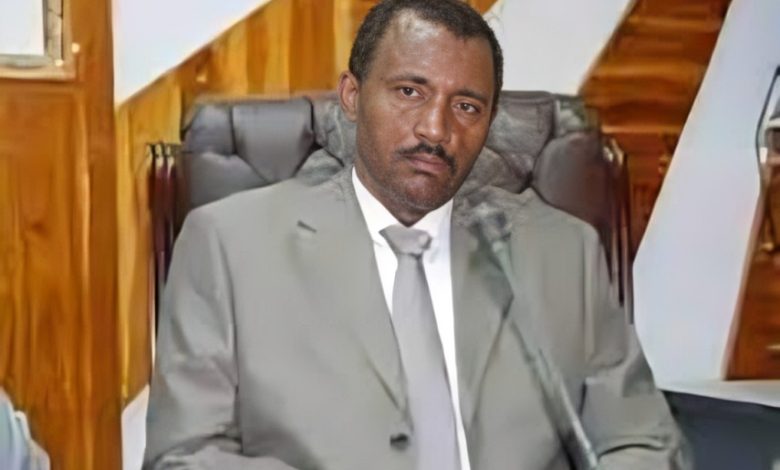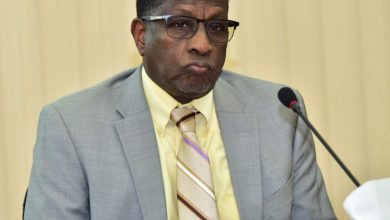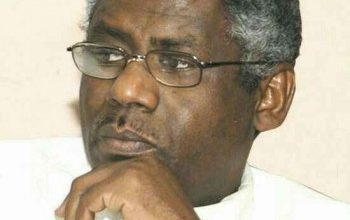Alliances in Sudan have failed since the Graduates’ Conference, “Taggadum” a Result of the Old Political Mind

By Muhammad Farouk
The former Vice President of the Sudanese Alliance Party has called for establishing a new concept for establishing civil political alliances in Sudan, by forming a single front that includes all Sudanese to produce a dialogue that includes all of them, rejecting the confinement of alliances to view on power sharing, and described the new alliance represented by the Coordination of Civil Democratic Forces “TAGADDUM” as born out of the same old political mind, he expressed his regret at the failure of the political forces to provide institutional leadership despite the greatness of the December Revolution.
Engineer Muhammad Farouk said in an interview with the “Sudanese Dossiers Program to be broadcast morning, Saturday,” that the unity of the Civil Democratic Forces Front “provides” a slogan that can be sustained and bet on, but the political forces must learn from previous experiences in forming alliances. He said that he feels that “the progress… “The product of the same old political mind, nothing different.
He considered that there was a problem, a problem regarding the nature of the call itself, he said: When I hear about a call for the unity of civil forces, and before that call is launched, we must be more united, pointing out that there will be a polarization, exclusion and isolation, as if the Sudanese were always more united before someone calls them on their issues. Such as the issues of peace, democracy, the rule of law and achieving justice, which are noble and important issues and great goals, ultimately turn into civil conflict. As if no one could disagree about any of these goals.
He explained that he had been working on political reviews related to the history and past of political alliances for a long time, and he said that there is a problem that begins with the call for an alliance. He said that the basis for calling for alliances is wrong, and that the Sudanese always meet to agree on a minimum. He added, “Basically, I do not consider this a call to establish It is only a call to share and share power.
The call for alliance is accompanied by a call for isolation
The former leader of the Sudanese Alliance, Muhammad Farouk, pointed out that such calls to form alliances are always accompanied by a call to isolate this or that person, and a demand to exclude everyone who participated in power. He said as if the Front and the Civil Action Union were intended to participate in power and not to answer the most important question, “How Sudan is Ruled?”
He stressed that this unity process must be viewed as a union that includes the Sudanese to produce a dialogue that bring them all together. Without considering this issue, it is not a vessel or a system for forming authority and providing leadership.
He said that this issue makes us ask the question when we talk about the failure of the civil political movement and civil political alliances, and through the reviews I am making, I am not happy about that, but it is our experience and our reality, and we must look at it with a critical eye and bear our responsibility towards the future.
Engineer Muhammad Farouk Salman, who represented his party within the Forces of Freedom and Change coalition, expressed his regret for what he described as the failure to provide qualified leadership to lead the stage successfully. He said, “Unfortunately, what happened in the December Revolution, despite its greatness, we have not succeeded, since April 2019 until the outbreak of this war, in providing institutional leadership” that reflects this revolution, and he stressed that the entities that were the icons of this revolution have been dismantled, referring to the experience of the Association of Professionals and other alliances and their role in leading the Sudanese street and organizing peaceful protests. He expressed his dissatisfaction by saying, people have failed in the slogan.
He considered that the problem is larger than the political divisions within the alliances, pointing out that the normal view is that we usually look at the official or regular forces in the state, as an expression of the civil political consensus. He said that failure of these forces and the fact that they themselves are turning into a menace and a security risk, and this is related to issues that are fundamentally political and linked to the civil mind itself.
It is unlikely that this issue is related to the opinion of civilians and politicians, or even to the opinion of the military, who always have the ability to undermine the civilian political movement and from April 11, 2018, the military component began to clearly transform as a political actor in the scene. Previously, the army even threatened political and constitutional life in the Sudan through infiltrations by a civil political movement. He pointed out that this happened in the 1958 coup led by Lieutenant General Ibrahim Abboud. He recalled that it was a hand-over coup from the first government after independence and the Sudanese army. It was repeated in 1969, then the 1989 coup, the National Islamic Front coup.
The Movements Addressed Their Questions
He expressed his regret that the political movement that took up arms to struggle for issues clearly wanted to transform itself and address its issues, such as what happened in the Juba peace agreement and others, considering itself a military component and a security component, and instead of investing in line with the nature of the revolution and transforming into a political civil movement, we have seen armed movements trying to re-recruit forces again so that they can be a party with a leverage or gain favor in the process of security arrangements. He said that they have clearly become a security threat and have become a threat to the transformations between these military components, regardless of talk about the unarmed civilian movement, in clear form of great polarization even within the conflict, which transformed the military component, which included the Sudanese army and the Rapid Support Forces, from one single component, into two parties of polarization, clearly before and after the war, and until now.
He recalled the failed experiences since independence and said that failure has been inherent in the Sudanese political experiences even within these fronts since the Graduates’ Conference before independence, the Entities Front in 1964, the National and Trade Union Rally in 1985, and later the National Rally in the experience of the first transition against the Salvation regime and after the Comprehensive Peace Agreement in 2005 and the Cairo Agreement. He said these issues that we are talking about in terms of freedom, peace and justice, are dropped and turn into a form of partnership in power and paying no attention to the state’s violent legacy and the threats to the existence of this state, through deviation in the institutions of this state and the corruption of these institutions before talking about the security and military cover.
He said that all these crises remain and continue up to what we see now which is not a threat from revolutionary forces or a national revolutionary project that undermines this state. What we see is that from within this apparatus of this state, and from within its distortions, this war is igniting, nothing else.
Sudanese RSF Soldiers
In another direction, the former leader of the Sudanese Alliance Party saw the possibility of integrating the Rapid Support Forces into the Sudanese army by establishing a unified national army. He said that they are Sudanese and their future concerns Sudan and the Sudanese state to a very great extent. He added that considering their presence within the regular force or within the Sudanese army is as if this regular force were will remain a threat to the constitution and the rule of law after the war. This issue must be overcome given our history. He explained that if the violations committed by the Rapid Support Forces were examined, then the Sudanese army itself has been involved in violations since 1955, and no one has called for its dissolution until now.
He stated that the army was unable, in its first real test in cities, to protect citizens. It remained more capable of protecting its headquarters and centers like any occupying force, but he added this could be due to the possibility that it is linked to the nature of the city. of course the city, and the state in our concept that originally, the city for us was a colonizer and was not the result of a Sudanese socio-political conflict. He downplayed fears about the presence of the Rapid Support Forces in the transitional period, considering it a security threat. He said, “This issue is simple and not as big as it is being discussed now. The repeated question is whether we will absorb the Rapid Support Forces into the army.” He considered such questions to be a crisis for the Sudanese state, and he inferred by saying that there are 140,000 who carried weapons against the Sudanese citizens, let alone their war with the army in any aspect related to their presence in El Geneina or on the Gezira in many areas they did not constitute forces that could be trusted to be a regular and official force, and this matter applies to the regular forces in many forms of corruption in Sudanese state.
They noted that the practices that were carried out by the Political Security Service in many of its headquarters, including torture, killing, and even the practices of the Sudanese army itself, and we must not forget that after fifty years of civil war, when the Comprehensive Peace Agreement was signed in 2005, the Sudanese army was not hand over a single war prisoner to the SPLA.
He said that these issues do not exist in our vocabulary of regular force when we look at all Sudanese with the presence of all forms and features of heroism and courage among individuals on all margins and not in one region. He added, “It must be seen that we are restructuring an army and regular forces through this war.” He continued, “This is Experimenting with a different doctrine will not be a problem with the presence of members of the Rapid Support in the regular forces in the future, or members of the army, as the basis for these forces. He said for this issue must be subject for more questions and must be viewed within this context.
He pointed out that there was no call to dissolving the army. But this call to dissolve the army itself will be forgotten on the day when the state and the civil political movement are able, if they are able to dissolve the army. This would mean that the authority of the state and its hierarchy have become clearer. In practice, this call will show that its limitations are linked to the issue of comprehensive national security, and its functions and the protection of citizens, other than the accountability related to the state’s possession and might in the violent depth.


